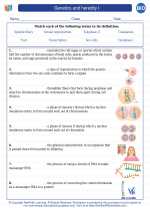Structure of Thymine
Thymine has a molecular formula of C5H6N2O2 and a molecular weight of 126.11 g/mol. Its chemical structure consists of a pyrimidine ring and a methyl group.
Function in DNA
Thymine plays a crucial role in the genetic code. It forms base pairs with adenine through two hydrogen bonds, contributing to the stability and structure of the DNA double helix.
Role in Genetic Information
Thymine, along with adenine, guanine, and cytosine, is involved in the storage and transmission of genetic information. The sequence of thymine bases in DNA is essential for encoding the genetic instructions necessary for the development, functioning, and reproduction of all living organisms.
Thymine and Disease
Research has linked mutations in the thymine base pairs to various genetic disorders and diseases, highlighting the importance of understanding thymine's role in maintaining genetic integrity.
Conclusion
Thymine is a fundamental component of DNA, contributing to the genetic code and the inheritance of traits. Its structure and function are essential for understanding the molecular basis of life and the mechanisms of genetic information transfer.
[Thymine] Related Worksheets and Study Guides:
.◂Biology Worksheets and Study Guides High School. Genetics and heredity I
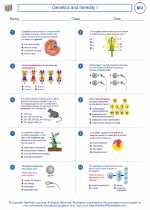
 Worksheet/Answer key
Worksheet/Answer key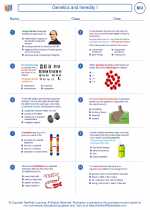
 Worksheet/Answer key
Worksheet/Answer key
 Worksheet/Answer key
Worksheet/Answer key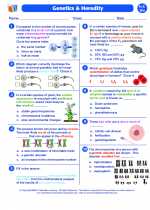
 Vocabulary/Answer key
Vocabulary/Answer key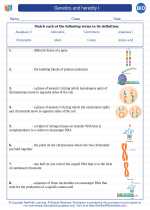
 Vocabulary/Answer key
Vocabulary/Answer key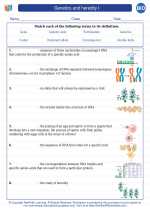
 Vocabulary/Answer key
Vocabulary/Answer key
 Vocabulary/Answer key
Vocabulary/Answer key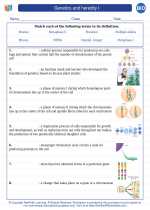
 Vocabulary/Answer key
Vocabulary/Answer key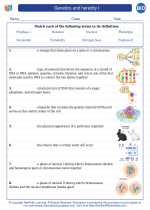
 Vocabulary/Answer key
Vocabulary/Answer key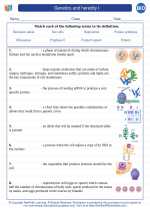
 Vocabulary/Answer key
Vocabulary/Answer key